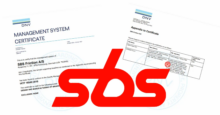The importance of employee documentation
 Employee documentation in management is one of the most important things that we need to do in business. Unfortunately, like in almost every other industry, we are very bad at it. From a human resource standpoint accurate and timely documentation of employment related issues can save us thousands and possibly millions of dollars. Also, and even more importantly, good documentation can help you as a manager improve the performance of your employees, which can add thousands to your dealerships bottom line in the form of profit.
Employee documentation in management is one of the most important things that we need to do in business. Unfortunately, like in almost every other industry, we are very bad at it. From a human resource standpoint accurate and timely documentation of employment related issues can save us thousands and possibly millions of dollars. Also, and even more importantly, good documentation can help you as a manager improve the performance of your employees, which can add thousands to your dealerships bottom line in the form of profit.
There are many sins that we commit as managers in a modern powersports dealership every day. Some are small sins that go unnoticed. But some are large but we minimize their business impact on our bottom line. Not documenting a performance issue today, or over time, can be costly in the long run. The purpose of this article is to give you some basic guidance on how to effectively document employee issues.
Below are some guidelines on proper employee documentation:
- Keep your audience in mind. Poorly written or unprofessional documentation on the surface is no big deal right? After all, it’s only going to be used internally correct? This mind set is so inaccurate. Whenever you write up an employee for performance do it professionally with thorough thought. You never know when this piece of documentation will help or hurt you. For example, one never knows when a piece of employee related documentation will be subpoenaed for a civil or criminal case. Keep your writing clear and professional.
- Do not backdate your disciplinary documentation. When you have to write someone up, do it in real time or as close to the incident as possible. Think about the attorney that is going to ask you why you documented an issue in September that actually occurred in March? Documentation in real time leads credence or believability to the document. If you back date your documentation it looks shady and unreliable.
- Do not be vague in your language. Vaguely written documentation is not worth the paper that it is printed on. Be specific as to the exact reasons you are writing up an employee. For example, do not document that your employee is “always late.” Give specific examples of the behavior that you are trying to deter by stating that your employee was late Tuesday, Thursday, and Saturday of last week. Do not let outsiders try to figure out what you are saying because it will never be in your favor.
- Always be truthful in your documentation. I know we all want to be viewed as nice and fair managers. You want to terminate an employee, but you want to be easy on them right? Wrong. Be honest and straightforward always, no matter how painful it is. For example, when you are terminating an employee do it for a specific reason or cause. Do not lie and tell them that their position is being eliminated or for budget reasons. The employee will always find out after the fact that they have been replaced after his or her termination and this opens you up to all kinds of litigation including discrimination. Tell the employee why they are being terminated and do not lie.
- Avoid hints of discrimination. I see so many managers at termination time tell the employee that he or she “is not a team player” or that “you don’t fit in around here.” Better yet my favorite is “you have a horrible attitude.” These types of statements could be viewed as discriminatory. For example, if the employee is the only woman, black, or gay employee in your dealership, and these words are used at termination time, you best be prepared for legal backlash. Always use exact, bulletproof and concrete examples of why the termination is happening. It will protect you and your dealership in the long run.
- Make sure the documentation is accurate. Always make sure that the documentation is 100 percent accurate. Make sure that the issues and scenarios are correct, the dates of occurrence are correct and use correct names of witnesses just to mention a few. If the documentation has even one error in it then the accuracy of the entire document could come into question.
- Do not write on an applicant’s resume. If you take notes during the interview process, do it on a separate piece of paper. Remember that your applicant or ex-employee’s attorney could call this document into evidence during litigation. If you have an employee fill out an application then the same rules apply. For example, one employer writes the initials “AA” on the applicants resume. The employer was referring to the fact that the employee had associates in the arts degree from a community college. What do you think the applicant’s attorney would think if the applicant was African American or in recovery through Alcoholics Anonymous?
- Make employees sign the documentation. Make sure that you and your employee sign the documentation. If your employee refuses to sign the documentation, then explain to them that it gives them the opportunity to agree or disagree with the write-up and give their side of the facts. I have had employees who have refused to sign and I have asked them to turn the paper over and write that they refuse to sign and date it.
As stated before documentation is an often overlooked and time-consuming managerial process. Employee documentation is one of the best defenses that we have to protect ourselves as managers and the dealership that we work for. And even more importantly, good documentation also provides us an avenue as managers to turn around bad employee behavior. After all, our basic role as managers is to achieve dealership goals through the management of others. By having strong documentation, we are trying to improve employee performance, which only leads to increasing our dealership’s bottom line profit. Think about it — It’s only good management!
Forrest Flinn, MBA, PHR, SMS has been in the motorcycle industry for more than 20 years and has been a true student and leader serving in various capacities. He previously worked as an implementation consultant for Lightspeed and as a general manager with P&L responsibility for a large metro multi-line dealership. Currently Forrest is the managing partner and chief visionary for a consulting firm that specializes in outsourced accounting, human resources, social media strategy, dealership operations consulting and Lightspeed/EVO training.
Contact: forrest@powersportsmc.com








